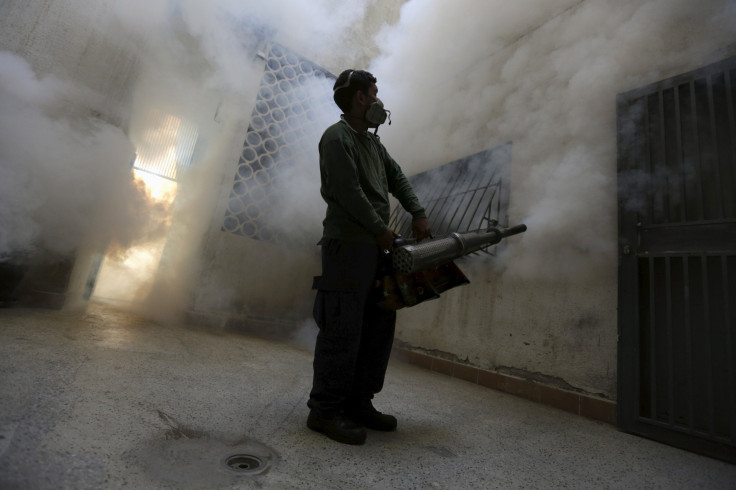Zika Virus Update: UK To Spray Insecticides On Planes From Affected Regions

The U.K. government announced Friday that planes landing in the country from Zika-affected areas will be sprayed with insecticides as a part an effort to avoid the spread of the virus. The disease, which can cause birth defects in babies if pregnant women are exposed to the virus, was declared an international emergency by the World Health Organization Monday.
The move will reduce the possibility of the passengers being bitten by the Aedes mosquitoes, which transmit the virus, inside the plane. A similar precaution is already in place against malaria.
U.K.’s public health minister, Jane Ellison, said, according to the Guardian: “Disinsection is a highly precautionary measure to reduce the risk to passengers during flights to the U.K. I want to reassure people that the risk to the U.K. population is extremely low. We advise people travelling to affected areas to reduce the risk of themselves being bitten by wearing mosquito repellent, long sleeves and trousers,” adding: “Pregnant women should consider avoiding travel to countries with the Zika virus, or, if travel is unavoidable, they ought to seek travel health advice from their GP or a travel clinic well in advance of their trip.”
The U.K. government has also announced an additional fund of 1 million pounds ($1.46 million) for research on the Zika virus, which has affected thousands of babies in Brazil born with underdeveloped brains. Officials from World Health Organization (WHO) have predicted that nearly 4 million people could be affected by the virus this year.
Dame Sally Davies, U.K.’s chief medical officer, said, according to the Guardian: “We are determined to support international efforts to understand how to diagnose the disease and control its spread. The U.K. is a world leader in medical research and I look forward to the progress this funding will undoubtedly bring. The risk to the U.K. from Zika virus is extremely low.”
On Tuesday, Texas, U.S. reported the first case Zika being sexually transmitted after the patient reportedly had sex with someone who returned from Venezuela. The WHO expressed concern over the latest case of the transmission and spokesperson Gregory Hartl said that “almost a 100 percent of the cases” were due to mosquito bites.
"This reported case in the U.S. of course raises concerns," Hartl reportedly said at the U.N. agency's headquarters in Geneva, according to a report, adding: "This needs to be further investigated to understand the conditions and how often or likely sexual transmission is."
The Centers for Disease Control and Prevention (CDC) said it would provide more guidance as more information about the virus comes in, but asked people to remain cautious in the meantime. "Sexual partners can protect each other by using condoms to prevent spreading sexually transmitted infections. People who have Zika virus infection can protect others by preventing additional mosquito bites," the CDC said, in a statement.
The virus has so far been reported in at least 26 countries in the Americas and Brazil has been the hardest-hit with 3,530 cases. Cases have also been reported in Ireland, Australia and Canada among travelers, who tested positive after visiting an affected area. Currently, there is no vaccine for the virus but reports Wednesday said that an Indian biotechnology firm has made significant progress on two promising Zika vaccines.
© Copyright IBTimes 2024. All rights reserved.






















